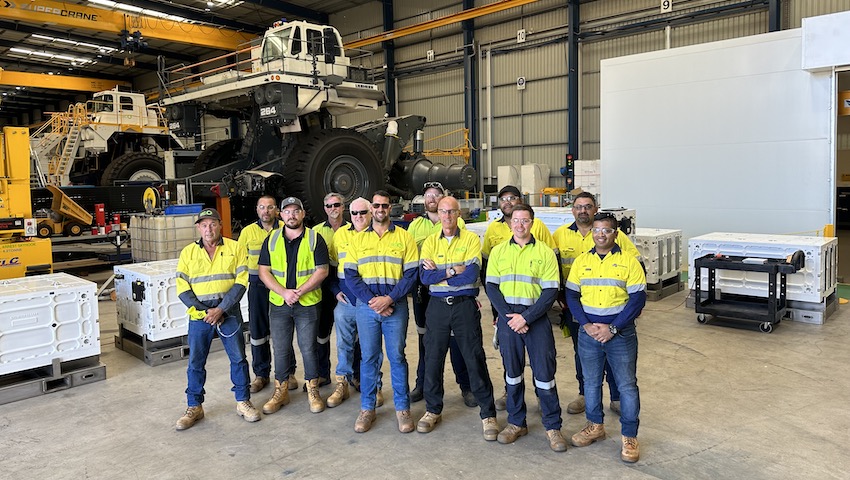
The University of Oxford has announced a landmark £97 million partnership with Fortescue Zero to pioneer next-generation battery technologies designed for heavy‑duty industries. Spearheaded under the EPSRC’s new Prosperity Partnerships initiative, this collaboration seeks to address a pivotal challenge: decarbonising sectors such as mining, transport, and construction.
This investment includes £41 million from UK Research and Innovation’s Engineering and Physical Sciences Research Council (EPSRC), matched with £56 million from Fortescue and academic collaborators. The aim: fast-track the development of safer, more efficient, and longer‑lasting industrial batteries.
Why it matters:
Heavy industries are among the last sectors to decarbonise. While passenger EVs have advanced quickly, electrifying mining trucks, construction machinery, and off‑road transport remains complex. Oxford’s partnership with Fortescue Zero—a global leader in zero‑emission heavy‑duty solutions—offers a compelling bridge between academia and real‑world application.
Table of Contents

A Decade of Collaboration Culminates in an Ambitious Alliance
Oxford and Fortescue aren’t newcomers to this space. They share over ten years of cooperative R&D, bolstered by Oxford’s ZERO Institute, Materials and Engineering Science Departments, and Fortescue’s recent UK manufacturing expansions in Kidlington and Banbury.
Fortescue’s UK footprint includes:
- A high-tech innovation centre in Kidlington, supporting prototype battery systems for heavy equipment and motorsport applications.
- A test and research facility in Banbury, adding engineering capacity for batteries and test cells.
These assets provide a unique synergy: leading-edge research in Oxford’s labs meets Fortescue’s industrial-scale production and testing platforms.
Five Research Pillars: From Lab to Field
- Battery Safety
- Accelerated stress-testing methods
- Advanced failure modelling and certification protocols
- Battery Management & Control
- Hybrid physics-based and AI diagnostics
- Real-time performance optimisation
- Thermal Management
- Cutting-edge nano-insulation and heat-dissipation systems
- AI for Battery Engineering
- Deep learning integration into field and lab instruments
- Data-driven battery performance analytics
- Horizon Scanning
- Strategic tracking of emerging battery technologies and shifts in energy storage needs
Innovations will be validated directly within Fortescue’s battery systems, ensuring real-world relevance from day one.
Leadership and Institutional Backing
Professor David Howey (Engineering Science, Oxford) emphasises the partnership’s ambition: transitioning groundbreaking academic research into practical industrial technologies, helping to electrify the hardest-to-abate sectors while fostering UK innovation.
Professor Paul Shearing, also of Engineering Science, leads battery safety efforts, leveraging his expertise to mitigate the risks of high-energy, large-scale battery systems.
EPSRC Executive Chair Professor Charlotte Deane highlights the Prosperity Partnerships model: “combining world-class expertise from business and academia to tackle big challenges, support industrial growth, and elevate UK research.”

A Strategic Boost for the UK Energy and Manufacturing Ecosystem
By fostering breakthroughs in high-performance battery platforms, this £97 million alliance supports UK ambitions for green tech leadership, offering:
- Economic impact: homegrown technologies with global export potential
- Environmental gains: cleaner air and significant reductions in carbon emissions
- Industrial transformation: electrifying sectors that contribute heavily to national GDP
This mirrors earlier successes, such as the Oxford–Oxford PV partnership under the Prosperity scheme, which drove perovskite solar cell innovation from lab bench to commercial trajectory.
Looking Ahead: From Research to Real-World Change
As the project unfolds, expect:
- Rigorous lab-to-field pipeline testing
- Job creation across research, engineering, and testing roles
- Emerging commercial prototypes with tangible export and deployment pathways
These developments further fortify Oxford’s credentials in energy storage research—ranging from solid-state and high-density cathodes to AI-led diagnostics—and add a robust, industrial spin through Fortescue’s testbed capabilities.

Conclusion
This substantial investment underscores a powerful truth: solving climate and energy challenges requires blending academic discovery with industrial implementation. With Oxford’s scientific rigour and Fortescue’s production prowess, the partnership is well-positioned to redefine battery-driven decarbonization across heavy industries. The human element—skilled professionals collaborating across sectors—will be its greatest asset in delivering a sustainable industrial future.
Join our WhatsApp community
Join Our Social Media Channels:
WhatsApp: NaijaEyes
Facebook: NaijaEyes
Twitter: NaijaEyes
Instagram: NaijaEyes
TikTok: NaijaEyes






































